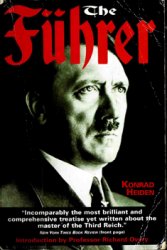After Chiang Ching-kuo's death in early 1988, his vice president, Lee Teng-Hui, succeeded him as president. In 1996 he was elected to a new term, which ended in 2000. Born in Taiwan, Lee studied agricultural economics in Taiwan and earned a doctorate at Cornell University in New York. Under his administration Taiwan made major changes. The government extended freedom of speech, set up a new system of parliamentary elections, revised the constitution to permit direct election of presidents, and opened talks (through nongovernmental organizations) with the People's Republic of China.
Of the more than one hundred political parties in Taiwan, only three have significant influence. The Kuomintang (KMT), the party created by Sun Yat-Sen in 1894, remained the ruling party in Taiwan until the election of March, 2000. Although the KMT continued to maintain a majority in the legislature, the party's loss of the presidency surprised most international observers, who had expected the KMT to control the government for many more years.
The Democratic Progressive Party (DPP) was founded in the late 1980's but it grew quickly. One of its goals is to make Taiwan a fully independent country—a position that places it in direct conflict with the government of the People's Republic of China, which has repeatedly asserted that Taiwan is an integral part of China. China has threatened to use force to prevent Taiwan's independence. During the 1996 election, the People's Republic of China issued a thinly veiled threat against proindependence candidates by firing missiles off the Taiwanese coast. In 2000, mainland Chinese representatives warned repeatedly that the people of Taiwan should not elect DPP candidate Chen Shui-bian. After Chen was elected, he made efforts to placate China by declaring that there was no need for Taiwan to declare formal independence. These declarations failed to put the concerns of the PRC to rest.
The New Party (NP), established during the 1990's, has fewer members than the other two and has won few electoral offices. Although the party does not have enough members in parliament to pass legislation, its representatives control votes other parties need. They sometimes work with the KMT, sometimes with the DPP.
Public opinion surveys have indicated that most Taiwanese are contented with Taiwan's current status and want neither full independence nor immediate reunification with mainland China.




 World History
World History









